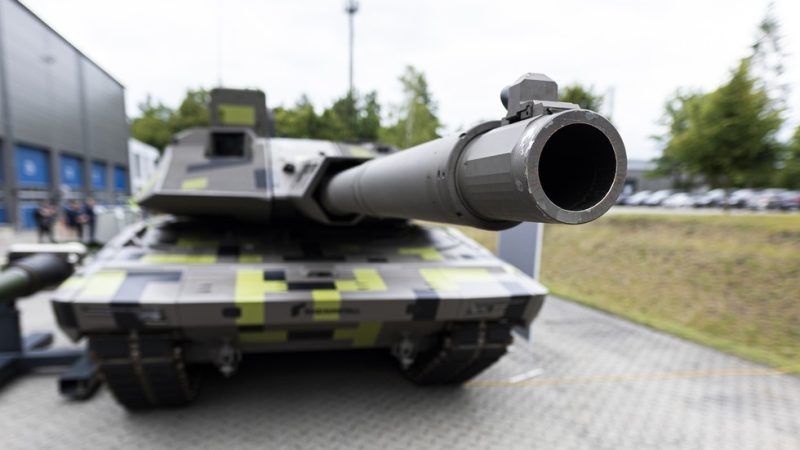
Recent breakthroughs in US-brokered peace talks between Russia and Ukraine have sent ripples through the European financial markets, specifically impacting the defense sector. The STOXX Europe Total Market Aerospace & Defense Index experienced a significant 2.6% drop on Tuesday, a stark contrast to the overall positive market sentiment. This downturn reflects a shift in investor perception as hopes for a resolution to the conflict rise.
The decline follows a meeting between US President Donald Trump, Ukrainian President Vladimir Zelensky, and key Western European leaders. This meeting, closely following Trump’s summit with Russian President Vladimir Putin in Alaska, has fueled optimism for a potential peace deal. The market reacted swiftly, interpreting the ongoing negotiations as an opportunity to secure profits after a considerable surge in defense stocks earlier this year.
Among the hardest hit were major European defense firms. Italian defense firm Leonardo saw a substantial 10.1% drop in share value, while Germany’s Hensoldt experienced a 9.5% decline. German defense supplier Rheinmetall and tank components maker Renk also suffered losses, falling 4.9% and 8.2% respectively. This significant market correction highlights the close correlation between the success of peace negotiations and the performance of defense companies, whose fortunes are often tied to ongoing conflicts.
Craig Cameron, head of European equities at Franklin Templeton, commented to the Financial Times that any de-escalation of tensions between Russia and Europe, coupled with discussions around increased US military equipment spending, would negatively impact these companies. This suggests that investors see a decrease in military spending as a likely outcome of a peaceful resolution to the conflict.
The surge in European defense stocks earlier this year was largely attributed to Germany’s decision to increase defense spending and the EU’s launch of a massive €900 billion defense industry initiative. These moves were fueled by concerns about a potential reduction in US involvement in European security and the escalating conflict in Ukraine. However, the recent developments in peace negotiations are clearly reversing this trend.
While an agreement in principle has reportedly been reached to arrange a face-to-face meeting between Putin and Zelensky, the Kremlin is yet to confirm the details. AFP reports that Putin has offered to host the talks in Moscow, a proposal that Zelensky has reportedly rejected, requesting a neutral location instead. The outcome of these discussions remains uncertain, but their impact on the European defense industry is already evident.










